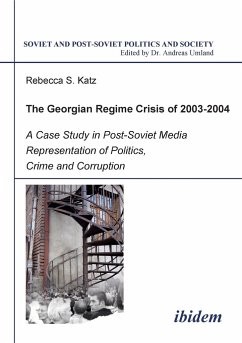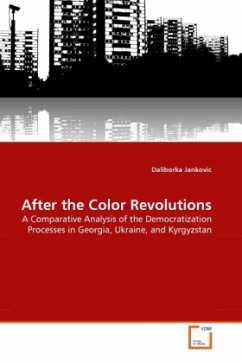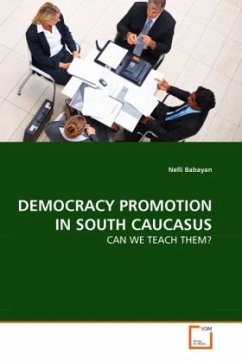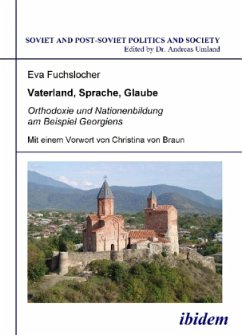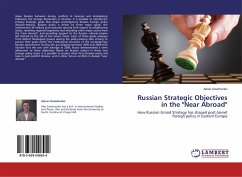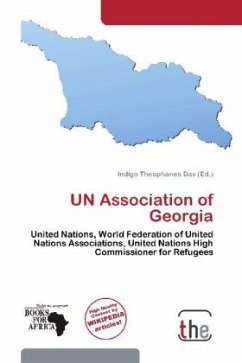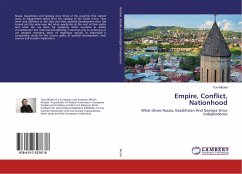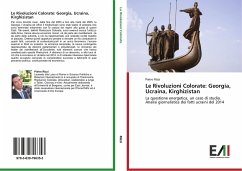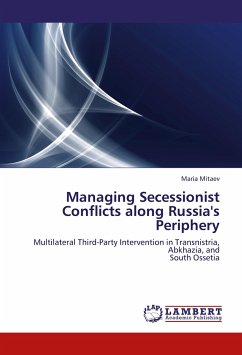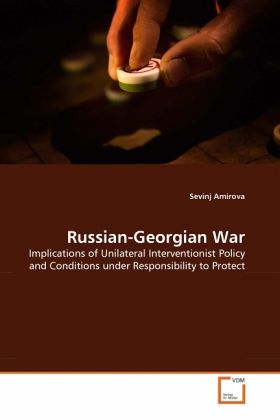
Russian-Georgian War
Implications of Unilateral Interventionist Policy and Conditions under Responsibility to Protect
Versandkostenfrei!
Versandfertig in 6-10 Tagen
32,99 €
inkl. MwSt.

PAYBACK Punkte
16 °P sammeln!
Since the collapse of the Soviet Union, Russia, in an attempt to maintain its regional power status, has actively taken part in peace building operations and settlement of internal conflicts within the territories of the post-Soviet states. In order to justify its unilateral and unauthorized intervention policy and military involvement in Georgia during August of 2008 Russian policy-makers referred to the principles of the humanitarian intervention, particularly to the responsibility to protect. By analyzing the August War, this work explore conditions for application and justification of the ...
Since the collapse of the Soviet Union, Russia, in an attempt to maintain its regional power status, has actively taken part in peace building operations and settlement of internal conflicts within the territories of the post-Soviet states. In order to justify its unilateral and unauthorized intervention policy and military involvement in Georgia during August of 2008 Russian policy-makers referred to the principles of the humanitarian intervention, particularly to the responsibility to protect. By analyzing the August War, this work explore conditions for application and justification of the unilateral interventionist policy under the concept of responsibility to protect. The study answers to the questions: What does Russian military intervention in Georgia tell us about the nature of the emerging interventionist norms? What are the conditions under which the concept responsibility to protect' might provide an opportunity for great powers to instrumentalise humanitarian aspect and peacekeeping operations to achieve their security and foreign policy objectives?



